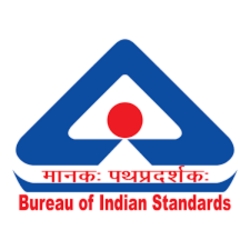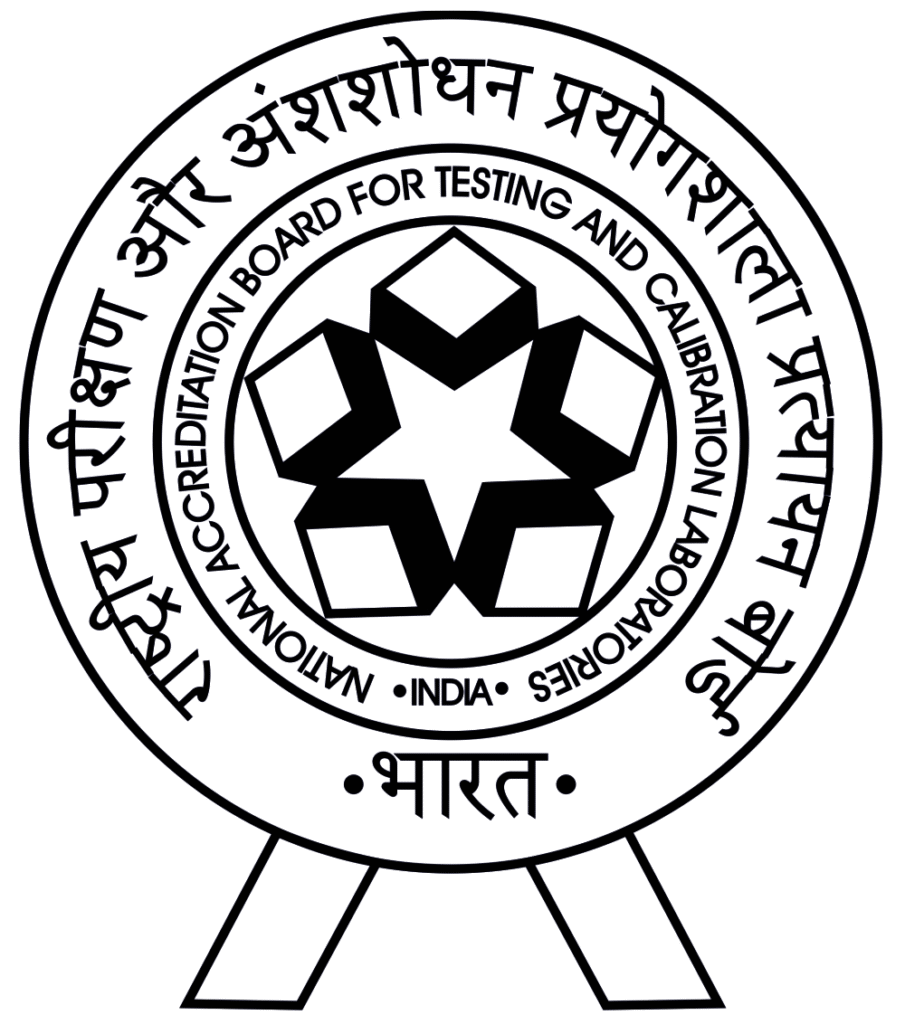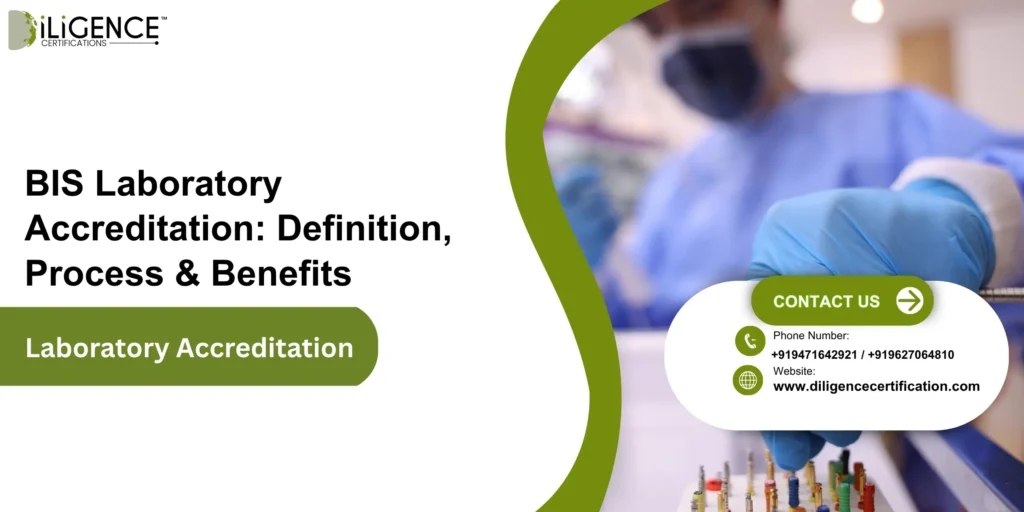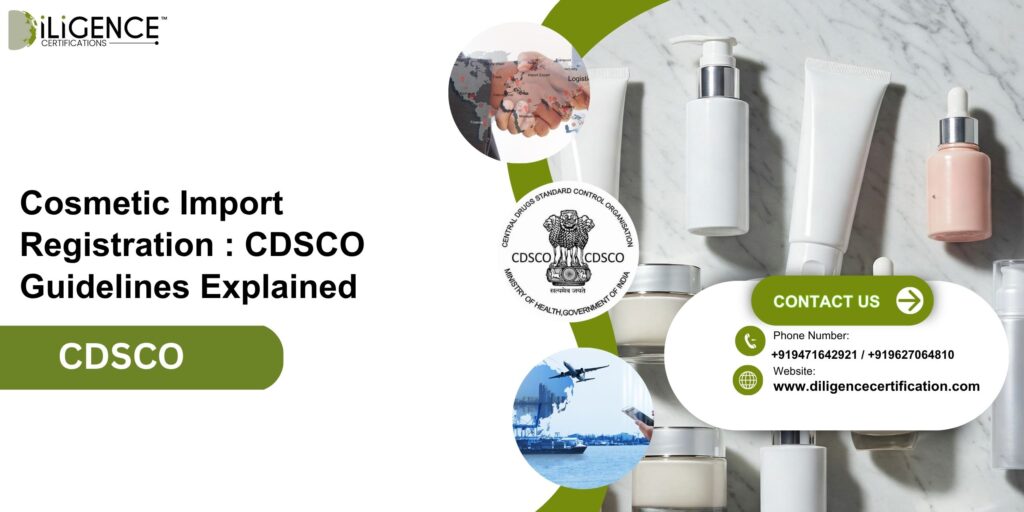- What is Laboratory Accreditation, Laboratory Accreditation, Bureau of Indian Standards, BIS Certification
- Objective: Describes what laboratory accreditation means, laboratory accreditation process, why laboratory accreditation is important, and how it is related to Bureau of Indian Standards, in India
- Ideal For: Manufacturers, testing laboratories, exporters, and certification professionals that want laboratory accreditation recognized by BIS.
What is Laboratory Accreditation?

In India, numerous manufacturers face difficulties in obtaining product certifications due to their test results not being accepted by the Bureau of Indian Standards (BIS). A client even told me that a minor failure of one of his tests had delayed his BIS certification by two months. Only after the delay did he discover that his lab test did not comply with the national standard (which has no remedy to this).
That’s where laboratory accreditation comes in.
Laboratory accreditation is formal recognition that an inspection, test, or calibration lab is competent to perform specific tests or calibrations, in accordance with the specific standard that spells the literacy out and defines the criteria for competence. It’s a way to assure that the lab’s results are judiciously feasible, reliable, and traceable to a recognized standard.
In India, the accreditation of laboratories is designated to and effectuate by the National Accreditation Board for Testing and Calibration Laboratories (NABL) and is part of the Quality Council of India’s efforts. The Bureau of Indian Standards (BIS) will only use the recommendations of NABL accredited labs for certification for products that are tested under their Certification schemes.
Why Laboratory Accreditation Matters?

Accreditation of laboratories is not simply a matter of process. It is a foundation of trust, dependability, and global acceptance in the trade system.
Here’s why it’s important:
- Provides Quality Assurance: Accredited laboratories operate according to ISO/IEC 17025:2017 which ensures that their testing methods are reliable and consistent.
- BIS Recognized: BIS accepts testing done in NABL accredited laboratories through its ISI Mark and CRS schemes.
- International Acceptance: Accreditation provides exports with confidence, especially for exported goods to the EU and USA and most recently the Middle East.
- Elimination of Retesting Costs: Accepted test results lead to a broad acceptance which avoids duplication once reputable accreditation is achieved.
- Regulatory Compliance Support: Accreditation aids compliance with regulatory approvals including BIS Certification, Ecomark Registration and Environmental Compliance.
- Regulatory Compliance Support: Having accreditation supports compliance with regulatory approvals such as BIS Certification, Ecomark Registration and Environmental Compliance.
Having an unaccredited laboratory is like a doctor that is not licensed; they may be knowledgeable but they aren’t able to officially diagnose or prescribe medicines.
Accreditation Scope of Laboratory
The accreditation scope for your laboratory will be defined; the scope will define exactly the tests, parameters, equipment and standards your laboratory is recognized for performing by ISO/IEC 17025. For example:
- A textile lab could be accredited for an ISO 105 test for colorfastness as well as fiber composition testing.
- An electrical laboratory might be recognized for conducting insulation resistance tests under IS 694.
The scope of accreditation is publicly displayed on the NABL website so that clients and regulators can verify that a laboratory can perform a test with credibility.
How BIS Relies on Accredited Laboratories?
The Bureau of Indian Standards operates on a foundation of accredited laboratories for testing. For each type of BIS Certification – including the ISI Mark Scheme, the FMCS (Foreign Manufacturers Certification Scheme), and the CRS (Compulsory Registration Scheme) – the testing occurs at a NABL accredited laboratory recognized by the BIS.
Without such an accreditation, the test results have no value in a regulatory context. The BIS maintains a constantly updated list of recognized laboratories.
How Laboratory Accreditation Works in India?
To understand the relationship between laboratory accreditation and BIS Certification, it is best to separate the relevant activities into sequential parts.
1. Governing Body: NABL
The National Accreditation Board for Testing and Calibration Laboratories (NABL) is the only recognized accreditation body in India by BIS and ILAC (International Laboratory Accreditation Cooperation). NABL lies under the aegis of Quality Council of India (QCI), which is an autonomous body under the Government of India.
2. The Standard Being Followed: ISO/IEC 17025
Laboratories to be accredited must work in accordance with ISO/IEC 17025: 2017. ISO International Standard ISO/IEC 17025: 2017 is the only international standard which specifies the general requirements for the competence of testing and calibration laboratories.
This includes:
- Properly trained technical staff
- Calibrated and traceable equipment
- Documented quality management systems
- Validation of methods and uncertainty measurement
- Regular internal audits and proficiency testing
3. Accreditation Process
The accreditation process typically involves:
| Step | Description |
| Application Submission | The lab applies to NABL online, specifying test parameters and equipment. |
| Document Review | NABL reviews quality manuals, SOPs, and calibration records. |
| Pre-assessment | A preliminary audit helps identify gaps before the main assessment. |
| On-site Assessment | NABL assessors visit the lab to evaluate competence and systems. |
| Corrective Actions | The lab addresses any non-conformities identified. |
| Accreditation Decision | If all requirements are met, NABL grants accreditation for specific scopes. |
| Surveillance & Renewal | Periodic audits ensure continued compliance. |
Link Between BIS Certification and Laboratory Accreditation
The Bureau of Indian Standards (BIS) operates various certification programs such as the ISI Mark Scheme (for Indian manufacturers) and the Compulsory Registration Scheme (for electronics and IT products). Before BIS can issue any certification, the product has to be tested in a laboratory that has been granted NABL accreditation and accepted by BIS.
For example, if a manufacturer is applying to BIS for certification of LED bulbs under IS 16102, BIS will only accept the test report issued by the NABL accredited testing laboratory accepted by BIS.
In conclusion, if the laboratory has not received accreditation, it will not be able to be part of the BIS certification program process.
Importance of Laboratory Accreditation in BIS Certification
Laboratory accreditation is the backbone of BIS Certification. Without it, even a perfectly manufactured product cannot get certified.
Why BIS Requires Accreditation:
- To ensure product safety and reliability.
- To maintain uniformity of testing across India.
- To align Indian standards with global trade norms.
- To minimize false claims or manipulated test results.
Accreditation of testing laboratories is an essential requirement for BIS Certification. A product cannot be certified even if produced in the most ideal manner without this crucial step.
For example, testing of steel pipes under IS 1239 requires, by the Indian Bureau of Standards, that the testing laboratory has metallurgical accreditation from NABL to ensure authenticity and traceability.
The Importance of ISO/IEC 17025:2017 In Laboratory Accreditation.
Laboratory accreditation is based upon the ISO/IEC 17025 standard. This standard is the basis for testing and calibration laboratories around the world. These laboratories tend to certify that measurement and calibration or verification results are indeed produced consistently.
ISO/IEC 17025:2017 General Requirements
- Management requirements include: a quality system, document control and maintaining internal audits;
- Technical Requirements: competence of personnel, calibration of test equipment, environment for testing, and traceability of measurement results.
- Continual Improvement Process: a risk-based thinking approach and continual improvement.
Why Accept ISO/IEC 17025 Over Other Standards?
BIS trusts the validity of test reports. If a laboratory is ISO/IEC 17025 accredited, then the Bureau of Indian Standards will trust that the laboratory is following the principles of measurement that are internationally agreed upon. This creates confidence in issuing BIS certificates.
International Recognition of NABL Accreditation
NABL is a signatory to ILAC MRA (International Laboratory Accreditation Cooperation – Mutual Recognition Arrangement). This means that testing results that are completed by NABL accredited laboratories are recognised as equivalent in over 80 countries, the USA, UK, Germany and Japan, to name a few.
It enhances India’s export competitiveness by eliminating the need for retesting abroad. For exporters, this is a massive time and cost advantage.
U.S. Government Initiatives Supporting Laboratory Accreditation
Several initiatives by the Indian government advance laboratory accreditation to bolster quality infrastructure:
- Make in India and Atmanirbhar Bharat encourage Indian laboratories to achieve same level of standards as the world.
- National Quality mission: promotes laboratory accreditation to enhance product quality.
- Bureau of Indian Standards Laboratory Recognition Scheme: recognizes laboratories accredited by the National Accreditation Board of Testing and Calibration Laboratories (NABL) for product testing.
- Ease of Doing Business Policy: This builds upon the laboratory recognition scheme and seeks to streamline lab approvals through digital methods, such as the MANAK Online.
- Through these initiatives, the Indian government is driving a network of laboratories offering world class services that foster industrial growth in the economy and compliance to export market.
Accreditation Costs and Investment
The cost of obtaining NABL accreditation depends on several factors:
- Scope & Size of Laboratory (number of parameters)
- Number of Locations
- Type of Testing Equipment
- Assessor Days Required
On average small laboratories may spend around ₹2 to ₹5 lakhs, while large multi-disciplinary laboratories may spend ₹10 to ₹25 lakhs including infrastructure and training.
Although it does seem expensive, the benefits by way of increased credibility, regulatory recognition, and customer trust, far outweigh the costs.
Benefits of Laboratory Accreditation for Businesses
For testing laboratories, manufacturers, and exporters, the benefits are multi-fold:
1. Recognition by Regulatory Bodies
BIS, MoEFCC, and CPCB recognize only NABL-accredited labs for compliance testing.
2. Enhanced Credibility
Clients prefer accredited labs as their results are trusted both nationally and internationally.
3. Market Expansion
Accreditation to NABL (a signatory to the ILAC MRA) allows exporters to have their test reports accepted around the world.
4. Improved Quality Management
When you are accredited to ISO/IEC 17025 you have enhanced operational discipline, improved integrity and consistency of results, and you develop a culture of continual improvement.
5. Business Expansion
There are new avenues that are now available to you—operating as a BIS-recognized lab or being able to tender on government work.
Documents Required for Laboratory Accreditation
A laboratory is expected to have thorough documentation prior to applying for accreditation.
Key Documentation Includes:
- Quality Manual and Quality Policy
- Standard Operating Procedures (SOPs)
- Certificates of Calibration of Equipment
- Personnel Qualification Records
- Internal Audit Reports
- Test Methods and Uncertainty Measurements
- Environmental Control Records
Keeping these records not only aids in the accreditation process, but also reinforces the lab’s internal quality assurance infrastructure.
Validity and Renewal of Accreditation
- Validity: Anticipate holding accreditation for a period of usually 2 years, with yearly surveillance.
- Renewal: Thus labs can apply for renewal prior to the expiry date and show compliance with ISO/IEC 17025.
- Suspension/withdrawal: NABL may suspend a laboratory’s accreditation for non-compliance with NABL and unethical issues.
Continual readiness for audits maintains your uninterrupted recognition by BIS and other authorities.
Diligence Certifications Role in Laboratory Accreditation
At Diligence Certifications, we assist laboratories in achieving accreditation smoothly and efficiently.
Our services include:
- Gap Analysis as per ISO/IEC 17025
- Documentation Support and Internal Audit
- Staff Training and Competence Evaluation
- NABL Application Preparation
- Pre-assessment Guidance and Corrective Action Support
We’ve helped several testing and calibration laboratories across India become BIS-recognized by achieving NABL accreditation.
Laboratory Accreditation Challenges
Although there are considerable benefits to laboratory accreditation, many laboratories encounter challenges:
- Shortage of Technical Staff. It can be difficult to find trained personnel who are familiar with the requirements of ISO/IEC 17025.
- Documentation Issues. Incomplete standard operating procedures (SOPs) or missing calibration data can result in delays to the assessment.
- Equipment Calibration. Many small labs may not continue with the accreditation process because of the high equipment calibration costs.
- Non-conformities. Even minor non-conformities, such as lacking records of traceability, can affect the timeframe of your laboratory’s accreditation.
- Costs. Laboratories require periodic audits that usually result in non-negligible investments into lab infrastructure.
Still, most issues can be brought into compliance and made satisfactory within a reasonable timeframe with the proper consultant services and lab preparation before the visit.
Laboratory Accreditation vs. Certification
It’s important to distinguish between accreditation and certification, as they serve different purposes:
| Aspect | Laboratory Accreditation | Certification |
| Meaning | Recognition of technical competence | Conformity of product/process/system |
| Standard | ISO/IEC 17025 | ISO 9001, ISO 14001, BIS IS Standards |
| Authority | NABL (under QCI) | BIS or Certification Bodies |
| Scope | Testing and calibration activities | Product or management system |
| Outcome | Laboratory Accreditation Certificate | BIS/ISO Certificate |
In short, accreditation evaluates “how well a lab tests”, while certification confirms “what a product meets.”
Future of Laboratory Accreditation in India
India is undergoing a fast transformation in its industrial landscape. Initiatives such as Make in India and Atmanirbhar Bharat, are creating an increasing demand for reliable testing and certification infrastructure.
To support this, BIS has increased its network of recognized labs in partnership with NABL, to facilitate faster turnaround of testing and certification times. The digital change through portals with MANAK Online (BIS) and NABL Web Portal have increased access and transparency.
Conclusion
Accreditation of laboratories is much more than a need for compliance – it is trust, technical competence and assurance of quality.
By complying with ISO/IEC 17025 and becoming NABL accredited, laboratories can assure their outcomes are recognized by BIS, regulatory authorities as well as their global clients.
For manufacturers who are looking to receive BIS Certification, it is indispensable that they use an accredited laboratory. For laboratories, accreditation is the principle to achieve and maintain market credibility and longevity.
If you are looking to have your laboratory recognized by BIS or accredited by NABL with expert assistance – contact Diligence Certifications now.
Frequently Asked Questions
What is Laboratory Accreditation?
Laboratory Accreditation is a formal acknowledgment that a testing or calibration laboratory is technically competent to carry out particular tests in accordance with ISO/IEC 17025: 2017.
Provided laboratory Accreditation in India?
The National Accreditation Board for Testing and Calibration Laboratories (NABL) under Quality Council of India (QCI) conducts laboratory Accreditation recognized by Bureau of Indian Standards (BIS).
Why is it crucial for BIS Certification?
BIS certificate product test report recognized only form NABL laboratory accreditation, ensuring its accuracy, reliability and conformity to Indian standards.
What is the validity of the Laboratory Accreditation?
The validity period of accreditation is two (2) years. Accreditation shall be subject to annual surveillance and is to be renewed prior to expiry.
What is the distinction between accreditation and certification?
Accreditation determines the competence of a laboratory, while certification indicates a product or system is compliant with standards such as BIS or ISO 9001.
Should small labs get accredited?
Yes, any laboratory, be it government or private, that meets ISO/IEC 17025 requirements is eligible to apply for NABL accreditation.
What are the principal requirements of accreditation?
Having qualified or competent personnel on staff with equipment calibrated according to documented procedures in a strong quality system.
How to get recognition from BIS after NABL accredited testing?
Apply for recognition under the BIS Laboratory Recognition Scheme (LRS) after NABL accreditation when using NABL accredited testing as the official BIS testing.
Is NABL accredited testing results recognized internationally?
Yes. NABL is an MLA signatory and therefore, test results issued by NABL accredited labs will be recognized internationally in over 80 countries.
How can Diligence Certifications help?
Diligence Certifications acts as a facilitator to assist labs with all documentation, conduct audits, and support labs with NABL and BIS applications to accelerate the accreditation and recognition process.








 BIS Certification
BIS Certification
 CDSCO
CDSCO
 CPCB
CPCB
 LMPC
LMPC
 WPC Approval
WPC Approval
 Global Approvals
Global Approvals
 TEC
TEC
 ARAI
ARAI
 BEE
BEE
 ISO Certification
ISO Certification
 Drone Registration
Drone Registration
 NOC For Steel
NOC For Steel



















 Business Registration
Business Registration















 Legal Services
Legal Services
 Trademark Registration
Trademark Registration
 Copyright Registration
Copyright Registration
 Patent Registration
Patent Registration
















































